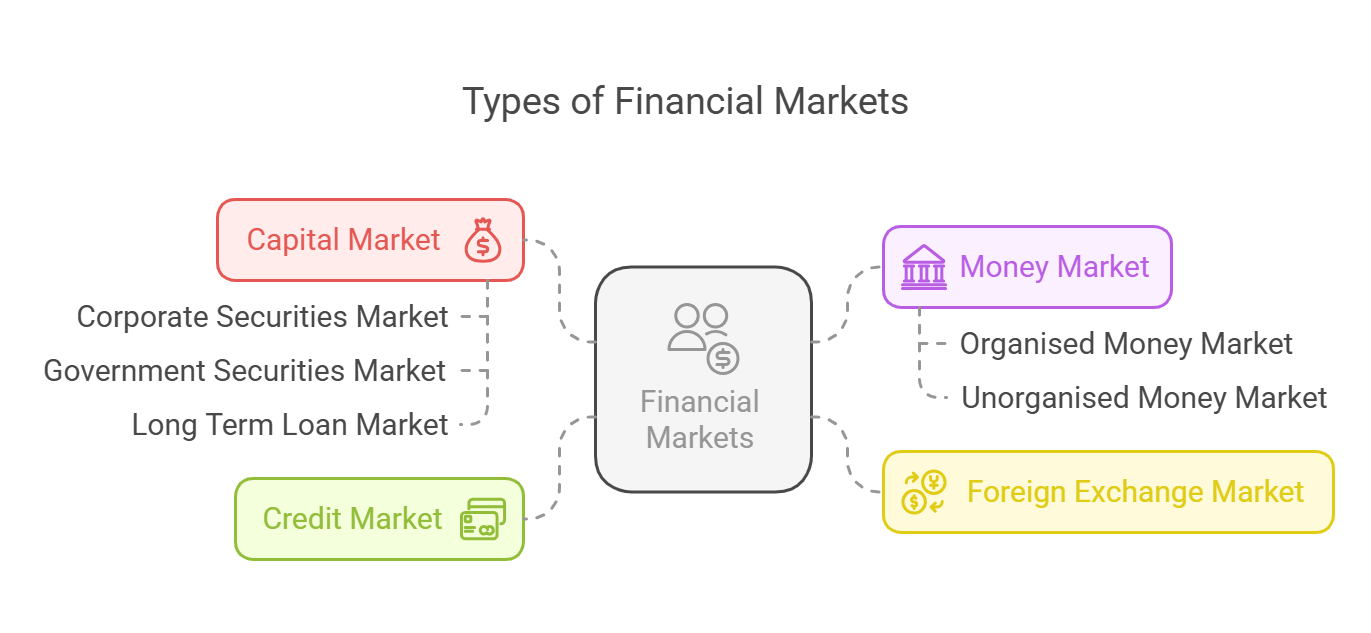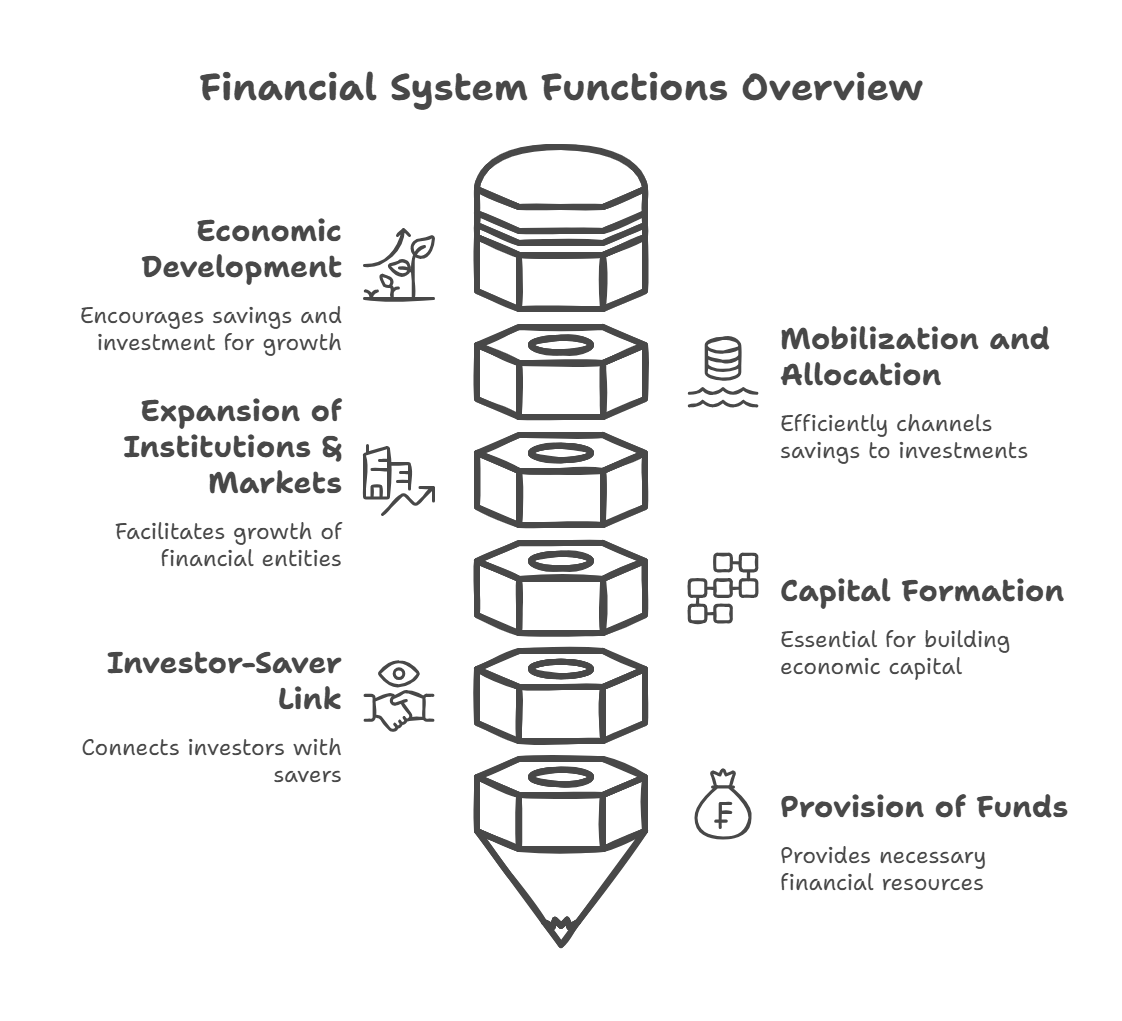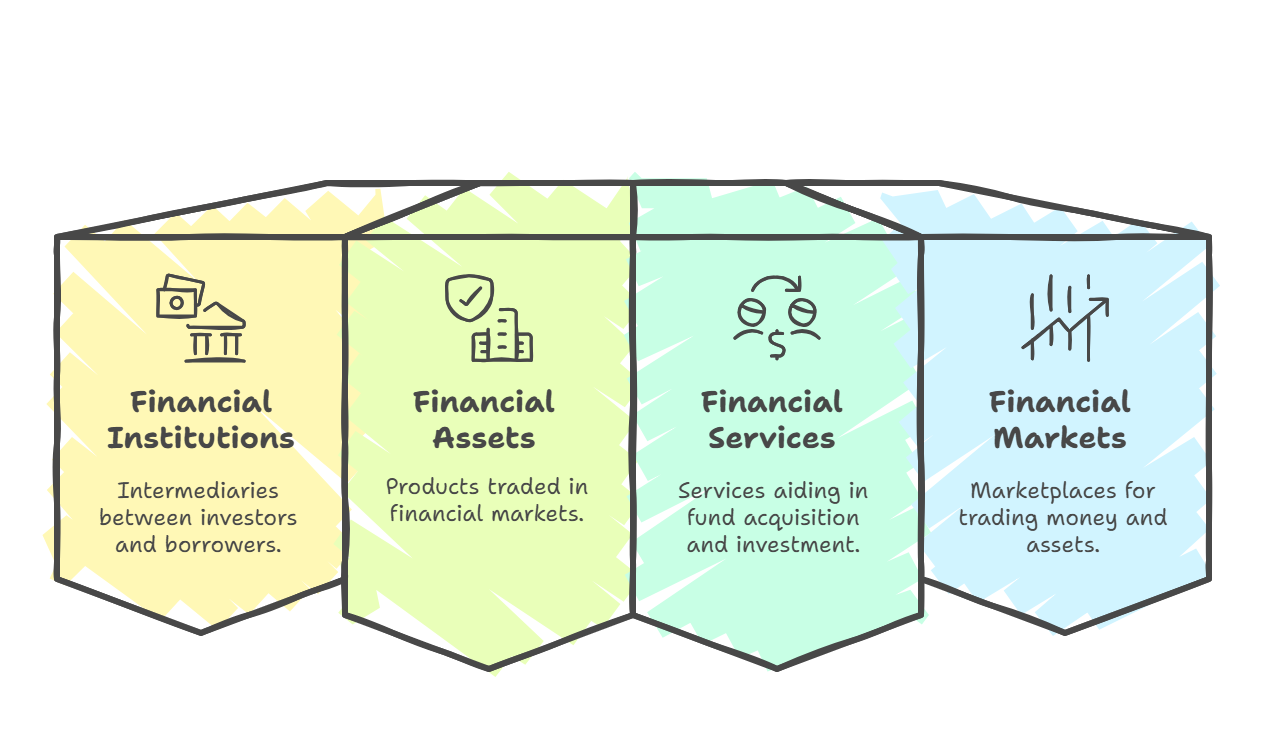The Indian Financial System: An Overview
The Indian Financial System is a critical component of the country's economic development. It facilitates the flow of funds from savers (households) to investors (businesses), benefiting both parties. This system is a vital topic for various government exams in India, requiring aspirants to study it thoroughly.
The Indian Financial System comprises the services provided by financial institutions such as banks, insurance companies, and pension funds.
Key Features:
- Economic Development: Plays a vital role in economic growth by encouraging savings and investment.
- Mobilization and Allocation: Helps in mobilizing and allocating savings efficiently.
- Expansion of Institutions & Markets: Facilitates the expansion of financial institutions and markets.
- Capital Formation: Plays a key role in capital formation.
- Investor-Saver Link: Forms a link between investors and savers.
- Provision of Funds: Concerned with providing funds.
Components of the Indian Financial System
The Indian Financial System consists of four main components:
1. Financial Institutions
Financial Institutions act as intermediaries between investors and borrowers. They mobilize savings either directly or indirectly through financial markets.
Main Functions:
- Term Transformation: Converts short-term liabilities into long-term investments.
- Risk Transformation: Converts risky investments into risk-free investments.
- Denomination Intermediation: Matches small deposits with large loans and vice versa.
Example: A bank acts as a financial institution. People deposit surplus money, and those in need borrow money. The bank acts as an intermediary.
Types of Financial Institutions:
- Banking Institutions (Depository Institutions): Banks and credit unions that collect money from the public against interest and lend it to borrowers.
- Non-Banking Institutions (Non-Depository Institutions): Insurance companies, mutual funds, and brokerage companies that sell financial products but do not accept monetary deposits.
Classification:
- Regulatory: Regulates financial markets (RBI, IRDA, SEBI, etc.).
- Intermediates: Commercial banks providing loans and financial assistance (SBI, BOB, PNB, etc.).
- Non-Intermediates: Institutions providing financial aid to corporate customers (NABARD, SIDBI, etc.).
2. Financial Assets
Financial Assets are the products traded in the Financial Markets. The securities differ based on the requirements and needs of the credit seeker.
Important Financial Assets:
- Call Money: Loan granted for one day and repaid the next day, without collateral.
- Notice Money: Loan granted for more than one day and less than 14 days, without collateral.
- Term Money: Deposit with a maturity period beyond 14 days.
- Treasury Bills (T-Bills): Government bonds/debt securities with a maturity of less than a year. Buying a T-Bill means lending money to the Government.
- Certificate of Deposits: Dematerialized (electronically generated) form for funds deposited in the bank for a specific period.
- Commercial Paper: Unsecured short-term debt instrument issued by corporations.
3. Financial Services
Financial Services are provided by Asset Management and Liability Management Companies. They help obtain the required funds and ensure efficient investment.
Financial Services in India:
- Banking Services: Services provided by banks (loans, deposits, debit/credit cards, opening accounts, etc.).
- Insurance Services: Issuing insurance, selling policies, insurance underwriting, and brokerages.
- Investment Services: Primarily asset management.
- Foreign Exchange Services: Currency exchange, foreign exchange transactions.
Main Aim: To assist individuals in selling, borrowing, or purchasing securities, enabling payments and settlements, and facilitating lending and investing.
4. Financial Markets
Financial Markets are marketplaces where buyers and sellers interact and trade money, bonds, shares, and other assets.
Types of Financial Markets:
-
Capital Market: Finances long-term investments (transactions lasting over a year).
- (a) Corporate Securities Market
- (b) Government Securities Market
- (c) Long Term Loan Market
-
Money Market: Dominated by Government, Banks, and Large Institutions; deals with short-term investments. It is a wholesale debt market with low-risk, highly liquid instruments.
- (a) Organised Money Market
- (b) Unorganised Money Market
-
Foreign Exchange Market: Deals with multi-currency requirements. Fund transfers are based on foreign currency rates.
-
Credit Market: Grants short-term and long-term loans to individuals or organizations by banks and financial institutions.




No Comments